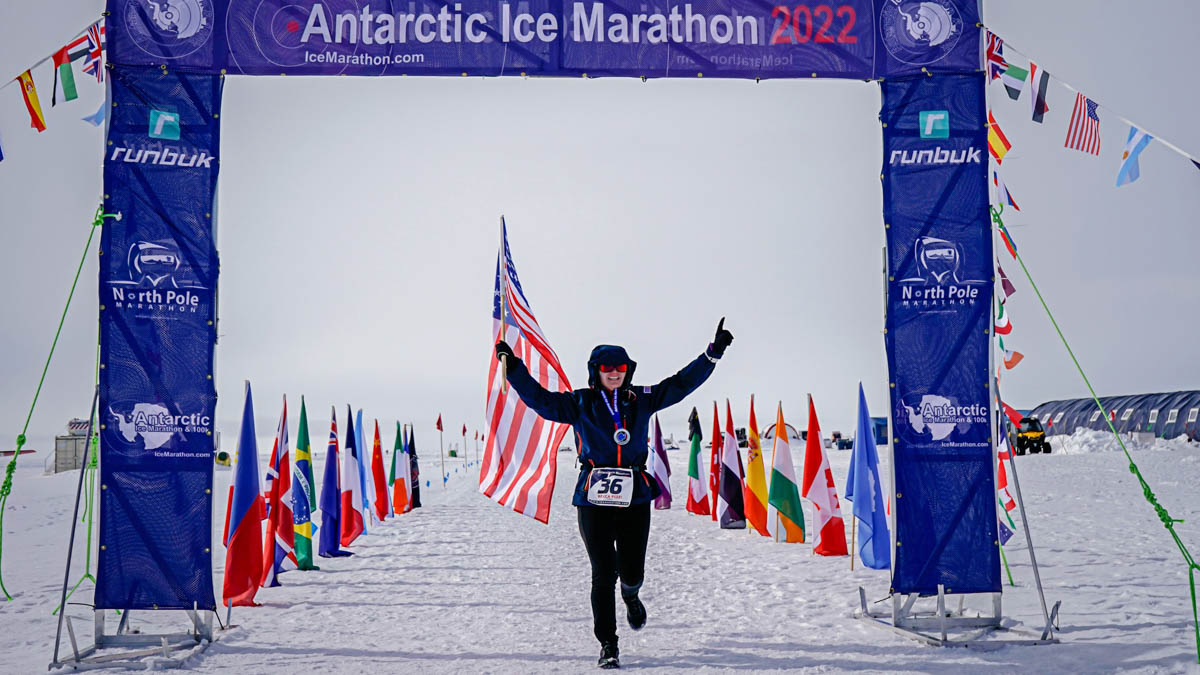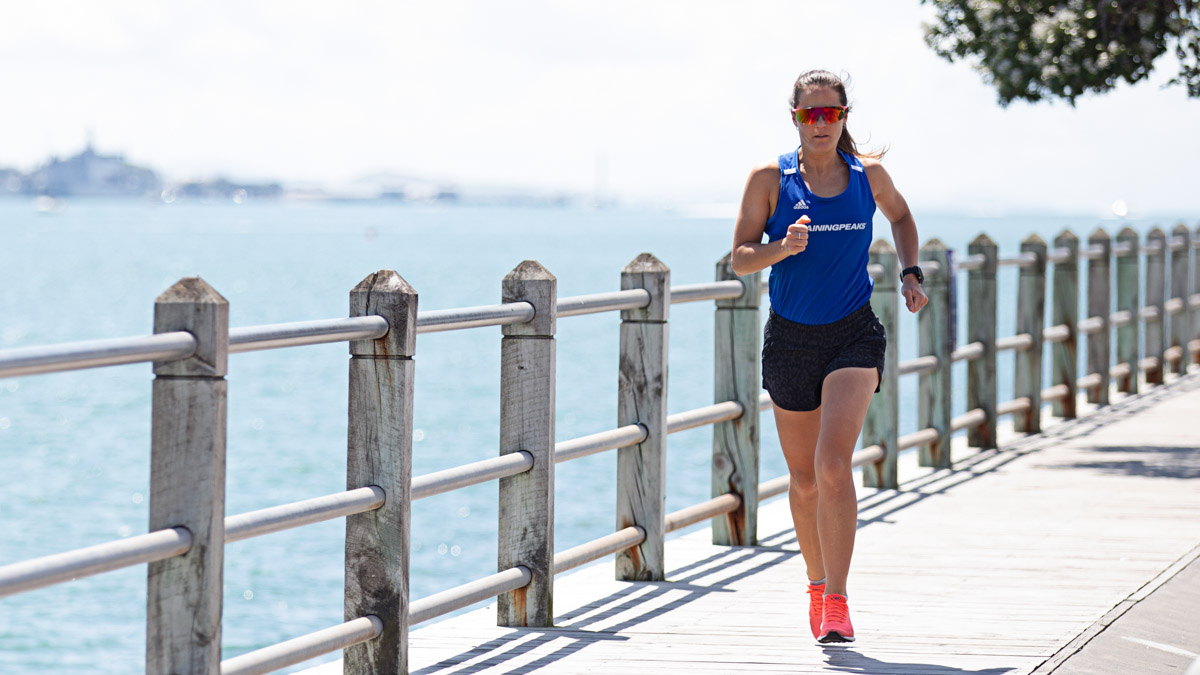Photo provided by Becca Pizzi
For many athletes, pushing limits and conquering new challenges is a way of life. The pursuit of personal growth and the thrill of competition can take runners to all corners of the world, embracing the breathtaking beauty and diversity of our planet. The Abbott World Marathon Majors, World Marathon Challenge, and Seven Continents Club offer ambitious runners the opportunity to test their grit, dedication, and passion for the sport while experiencing every continent’s unique culture and landscape.
Abbott World Marathon Majors
The Abbott World Marathon Majors (AbbottWMM) is a series of six of the most prestigious international marathons, drawing elite athletes and determined amateurs alike. The series features six iconic city marathons, including the Tokyo, Boston, London, Berlin, Chicago, and New York Marathons. Each race showcases outstanding talent, with participants competing for esteemed titles among the all-time greats.
A substantial prize purse and unrivaled prestige attract the world’s best to participate in the circuit. The men’s world record is 2:01:09, set by Kenya’s Eliud Kipchoge at the 2022 Berlin Marathon, while the women’s record is 2:14:04, achieved by Brigid Kosgei at the 2019 Chicago Marathon.
The Abbott World Marathon Majors Six Star Challenge is a worthy goal for amateur runners worldwide. By completing all six marathons in the series, runners earn the sought-after Six Star Medal. This challenge presents amateur athletes with the extraordinary opportunity to test their endurance and skill across various courses, cultures, and settings. Attaining the Six Star status represents a runner’s commitment to the sport and welcomes them into an exclusive global community of dedicated and passionate individuals who have achieved this remarkable accomplishment.
World Marathon Challenge
While AbbottWMM competitors can take years to obtain the Six Star Medal, the World Marathon Challenge requires a much tighter window for completion. This challenge is an extraordinary test of endurance, grit, and determination as participants embark on a remarkable journey to complete seven marathons on seven continents in just seven days.
This feat demands incredible physical and mental resilience as runners conquer the 26.2 miles of each marathon while simultaneously adapting to diverse climates, terrains, and time zones and managing the logistical complexities of international travel. There have been six editions of the race, beginning in 2015. The 2023 edition, capped at 50 participants, provides private charter and full accommodations, costing a notable 39,900 EUR (or about 43,000 USD).
I spoke with Becca Pizzi — the first American woman to participate in the challenge — who reflected on her record-setting journey in 2016. “We began in Antarctica, which was the most daunting part, as we were running on a glacier. It was both eerie and quiet; you could hear a pin drop. Maintaining focus was vital. With temperatures plunging to negative 20 degrees and the sun shining incessantly for 24 hours, it was crucial to have the right sunglasses and gear to tackle the challenges.”
Pizzi, a native of Boston, Massachusetts, enthusiastically described the trials of quickly adapting to various climates, foods, and conditions during her adventure. In the end, Pizzi won the women’s title that year, setting a (then) world record for the fastest cumulative marathon time of 27:26:15 hours, equating to an average marathon time of 3:55:11 hours.
Seven Continents Club
The Seven Continents Club honors runners who have completed marathons, half marathons, or ultramarathons on each continent. Unlike the World Marathon Challenge, the Seven Continents Club allows runners to select any marathon, half marathon, or ultramarathon on each continent (provided it meets the distance, director, and participant requirements) and does not require participants to finish within a specific timeframe.
Those who finish their chosen distance on each continent are added to the official Finisher’s List and awarded a medal and a certificate. As of now, 578 men and 305 women have completed the challenge at the marathon distance, and 26 men and 55 women have completed it at half marathon distance. Marathon Tours and Travel, which owns and operates the challenge, also offers travel arrangement services for enrolled members.
Tips on International Marathon Training From Becca Pizzi
These tips from 42-year-old Becca Pizzi — who has completed 98 marathons and has finished the World Marathon Challenge — offer valuable advice for runners looking to take on challenging international races.
- Do Your Homework. Research and prepare for the challenges of running in different time zones and countries, as the conditions, food, and resources can vary greatly from what you’re used to.
- Sign Up and Hold Yourself Accountable. The hardest part is often committing to a race. Once you’ve signed up, share your goal with others so they can support and hold you accountable.
- Listen to Your Body. Pay attention to your body’s signals, knowing when you’re pushing too hard or when you need a break. This will help you maintain your health and energy throughout your running journey.
- Believe in Yourself. Once you’ve committed to a race or goal, have faith in your abilities and trust that you can achieve what you’ve set out to do.
A Note on Environmental Responsibility
As marathon enthusiasts pursue their dreams by participating in international marathon challenges, finding a balance between passion and environmental responsibility is crucial. While these races provide unforgettable experiences and personal growth, they also contribute to the carbon footprint through extensive travel.
Runners can consciously offset their carbon emissions by supporting green initiatives like carbon offset programs and renewable energy certificates. Choosing eco-friendly transportation options like buses, trains, carpooling or even cycling and walking can further reduce emissions. Additionally, participating in local races when possible will minimize travel-related carbon footprints.
When venturing to other locations, runners should prioritize sustainable options, pack lightly, and seek environmentally friendly events. By adopting these practices, athletes can continue pursuing their passion for running while minimizing their environmental impact, fostering a more sustainable future for the sport and our planet.
References
(2022, April 29). How to Offset the Carbon Footprint of Flying. Retrieved from https://carbonfund.org/how-to-offset-the-carbon-footprint-of-flying/
Albeck-Ripka, L. (2020). Be a More Sustainable Traveler. Retrieved from https://www.nytimes.com/guides/travel/how-to-travel-sustainably
Tilton, M. (2021, December 8). How U.S. Road Races Can Be More Sustainable. Retrieved from https://www.runnersworld.com/races-places/a38461181/how-road-races-can-be-environmentally-friendly/









